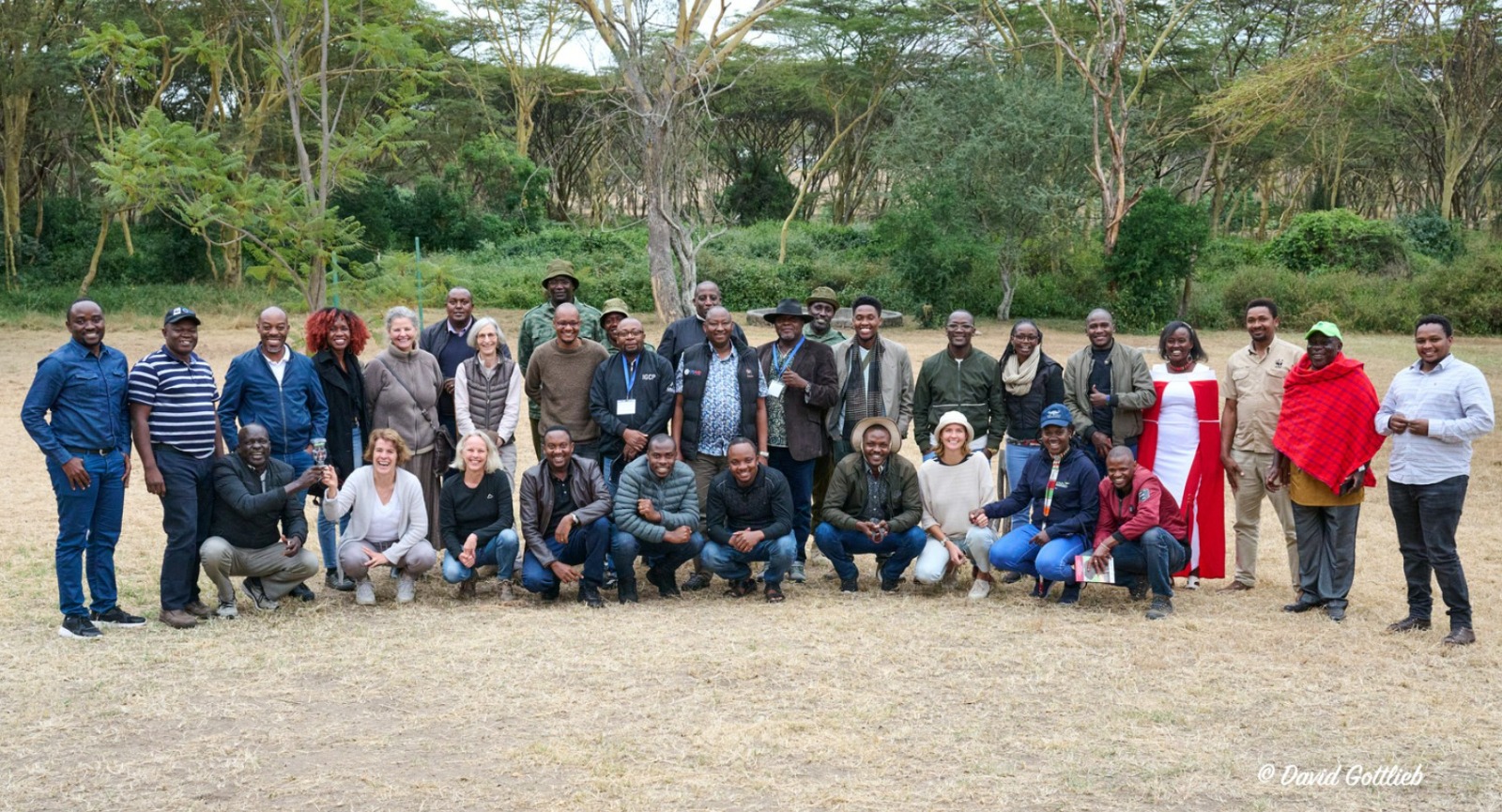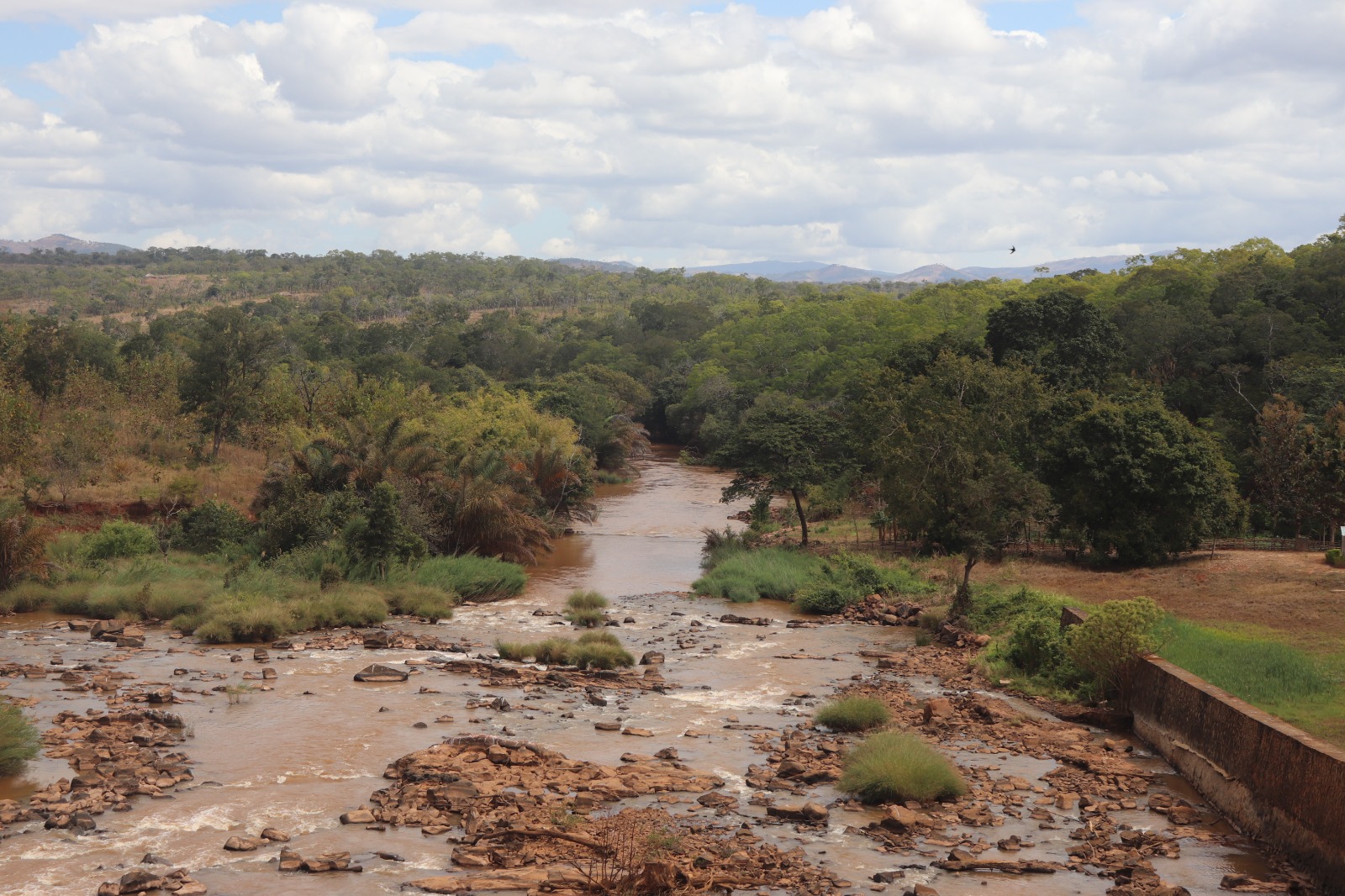Community Members in Tanzania's Tanga-Pemba Seascape set to benefit from new Blue Economy project
The Tanzanian Minister of Livestock and Fisheries, Honourable Abdallah Ulega, has today launched Bahari Mali, a three-year (2022–2025) blue economy programme in Tanga, Tanzania.
Tanga | 10 May 2023
The programme is funded by the Embassy of Ireland in Tanzania with a budget of TZS 4.64 billion (Euro 1.8 million). The Project aims to unlock sustainable development of the blue economy by supporting improved coastal community livelihoods and ecosystems conservation in the Tanga-Pemba seascape. It is implemented by IUCN, with close engagement from the Government in Mainland Tanzania and Zanzibar. The programme builds on a successful pilot phase that ran for 12 months in 2021–2022.
Implemented in four districts, namely, Mkinga and Pangani in Tanga region and Micheweni and Mkoani in Pemba Island, the project promotes a regenerative seascape approach through supporting sustainable blue livelihood and conservation of key marine and coastal ecosystems in the Tanga-Pemba Seascape. Bahari Mali falls under the umbrella of the Great Blue Wall Initiative, a Western Indian Ocean-led, Africa-driven roadmap to achieve a nature-positive world by 2030. Its secretariat, as mandated by WIO countries, is co-chaired by IUCN and the Economic Commission for Africa (UNECA) and is hosted by IUCN’s Eastern and Regional Africa Office (ESARO).
The Bahari Mali operates around four interlinked components: livelihoods, governance, research and advocacy. It targets local coastal communities with a particular emphasis on long-term sustainable livelihoods for women and youth. Its interventions also include collaboration with local government authorities (LGAs), ministries and research institutions involved in the blue economy and conservation of marine and coastal ecosystems.
Sustainable development of the blue economy is a key priority for both Mainland Tanzania and Zanzibar. Blue economy sectors in Zanzibar contribute 60% of GDP, with the tourism sector alone providing employment to 33% of Zanzibar’s population. The fisheries sector in Mainland Tanzania contributes 1.75% of the annual GDP, the third most important sector after mining and tourism. It provides direct employment to 195,435 fishers, 30,064 aquafarmers and indirect employment to 4.5 million people (6.89% of total population) who engage at different points on the fisheries value chain.
The Government of Mainland Tanzania has a clear vision of the importance of engaging communities in the development and sustainability of the blue economy. The Ministry of Livestock and Fisheries is promoting and supporting the implementation of various community-centred blue economy activities in the country. This financial year the Ministry had allocated TZS 33.2 billion (Euro 12.3 million) to support community-led blue economy activities with soft loans. This attracted more communities, especially youth and women, to engage in sustainable blue economy activities. Through this approach, we manage not only to the improve livelihoods of our people, but we also reduce pressure to critical ecosystems which then provide long-term benefits to our community,” says Hon. Abdallah Ulega, Minister Livestock and Fisheries, Mainland Tanzania.
The Government of Zanzibar has a policy, strategy and institutional arrangements in place to support sustainable development of the blue economy. “Zanzibar being an island, our communities depend heavily on ocean-related economies. Therefore, our blue economy policy and strategy emphasise on creating, promoting and supporting enabling environments for communities to participate and benefit from various blue economy opportunities. We are currently working with various partners, including IUCN and the Embassy of Ireland in Tanzania, to implement our blue economy policy and strategy”, says Dr. Aboud Jumbe, Principal Secretary, Ministry of Blue Economy and Fisheries, Zanzibar.
IUCN and the Embassy of Ireland Tanzania commend growing interest and various efforts taken by the Governments of Tanzania and Zanzibar to promote and develop the blue economy agenda. IUCN and the Embassy of Ireland Tanzania strongly believe that participation of communities, especially women and youth in the blue economy activities and conservation of marine and coastal ecosystems and associated biodiversity, are the central pillars for sustainability of blue economy activities in the country.
“As an island, Ireland understands the key role the blue economy can play in a country’s development. We know the importance of providing sustainable coastal livelihoods whilst also protecting marine resources so that they are available for future generations to come. We are delighted to see the progress Bahari Mali has made to date in supporting the empowerment of women and youth by providing access to sustainable economic opportunities in the Tanga-Pemba seascape.” H.E. Mary O’Neill, Ambassador of Ireland to Tanzania.
The Bahari Mali project is expected to achieve a number of results including increased income and improved livelihood of coastal communities especially women and youth, improved conservation and management of marine and coastal ecosystems and enriched knowledge and awareness of stakeholders on marine conservation and sustainable utilization of marine resources.
“We applaud the Governments of Mainland Tanzania and Zanzibar for prioritising sustainable development of the blue economy. The word sustainable is key here –conservation of marine and coastal ecosystems and associated biodiversity must be prioritised if coastal communities are to reap benefits both now and for generations to come. Functioning marine and coastal ecosystems such as mangroves, coral reefs and seagrasses must be protected if fisheries and coastal tourism are to be sustained. If these ecosystems are destroyed, all associated sectors will collapse”, says Luther Bois Anukur, IUCN Regional Director, Eastern and Southern Africa.
The Bahari Mali project is implemented in partnership with Western Indian Ocean Marine Science Association (WIOMSA) and Ocean Hub Africa (OHA) with close collaboration of the Governments of Mainland Tanzania and Zanzibar.
ENDS.



